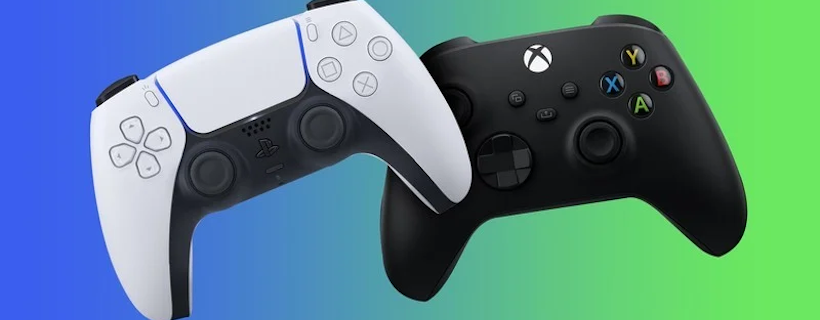While gaming has seen record engagement since the beginning of the pandemic, it hasn’t been an easy road for Microsoft and Sony more recently. Last week, the two companies released their next-generation gaming consoles, the Xbox Series X and PlayStation 5. Given everything that goes into a console launch, the on-time release is impressive. Both companies had a majority of their workforce working from home. In addition, scaling manufacturing of consoles was more difficult than it ever has been given that global supply chains shut down for a period of time. Dina Bass at Bloomberg wrote about the first console born in a pandemic.
While official numbers haven’t been released, it’s clear that interest in the PlayStation 5 outweighs the Xbox Series X. However, we view this year’s console launch as successful for both companies but for different reasons. Sony’s launch appears to be the most successful as the company has been able to deliver more units to retail stores and offer the best exclusive title lineup at launch. The company has given gamers a compelling reason to purchase the PS5. Microsoft on the other hand has executed on a slightly different strategy. The company has focused on high-value software services for customers and validated that its multiple entry point hardware strategy will be successful. For Microsoft, it’s less about selling high-priced consoles in the launch window, and more about establishing an ecosystem that can add players and generate recurring revenue over the lifetime of the new console generation.
We have heard some anecdotal evidence from local Target stores regarding inventory. The day of Microsoft’s launch, there were typically between 4-8 Xbox Series Xs at various stores. On the day of PlayStation’s launch, stores had 15-25 units. It’s important to note that this doesn’t factor in any pre-sale units, which could be vastly different. If we look at secondary markets like eBay, prices for the PlayStation 5 are between roughly $1,000 – $1,500, higher than the Xbox Series X which has seen prices between $750 – $1,250. Taking both points into consideration, along with expectations ahead of the launch, it’s likely the PlayStation 5 has sold and will sell more units through the launch window. In the previous generation, PlayStation outsold the Xbox 4 million units to 3 million units in the launch window. In April, we said that a successful launch for each company would see them hitting these same numbers in the launch window.
Spider-Man: Miles Morales is the most anticipated PlayStation exclusive in the launch window. Other popular titles like Call of Duty Black Ops: Cold War and Assassin’s Creed Valhalla launched on both the PlayStation and Xbox platforms. Xbox’s biggest exclusive title, Halo Infinite, was delayed until 2021. We believe the delay all but sealed the fate of the PS5 as the winner of the launch.
While Sony capitalized on having the strongest exclusive title line up at launch and will likely outsell the Xbox in total units, Microsoft is playing a different game than Sony. In Xbox’s blog post shortly after the launch, the company shared a few key data points: 1) Xbox sold more new consoles than any prior generation, indicating that interest in consoles is strong. 2) The Xbox Series S added the highest percentage of new players for any Xbox console at launch, validating their strategy of multiple entry points based on price, and 3) 70% of Series X|S consoles are attached to new and existing Xbox Game Pass members, meaning that 70% of games who have purchased a next-gen console were either existing Xbox Game Pass subscribers or became subscribers alongside their console purchase.
The second two points highlight Microsoft’s execution of their strategy. They’re adding more new players to their ecosystem than ever before and they’re bundling a SaaS product that is increasing in value. For $14.99 per month, players get access to Xbox Live Gold (typically $9.99 per month) allowing them to play games online, as well as access to over 100 titles. Microsoft has made notable acquisitions of game developers include Obsidian (Fallout, The Outer Worlds), inXile Entertainment (Wasteland), and most recently, a $7.5 billion deal for ZeniMax Media. ZeniMax, through its subsidiaries, holds a number of popular titles including The Elder Scrolls and Fallout series. All of these titles are available to Xbox Game Pass holders. This summer, Microsoft also announced that all of its Xbox Game Studios titles will be available to Xbox Game Pass holders at launch. This includes the upcoming Halo: Infinite and Forza Motorsport. On top of that, Xbox Game Pass now includes EA Play, the subscription service that gives players access to a majority of titles published by Electronic Arts. Xbox Game Pass is a compelling offering that, over time, will continue to convert gamers on PCs or any Xbox console. For Microsoft, it’s no longer just about selling expensive hardware units. Microsoft is well on its way to transitioning Xbox to a SaaS-like business as it has the rest of its company.
